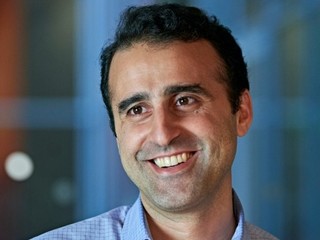 For years, there’s been a looming issue with a shortage of doctors and nurses in the US, as the demand for healthcare services has become greater than the supply, while the American population ages rapidly and needs more care. The healthcare staffing problem has been exacerbated by the pandemic, with a projected shortage of 17,800 to 48,000 primary care physicians and 21,000 to 77,100 specialty physicians by 2034.
For years, there’s been a looming issue with a shortage of doctors and nurses in the US, as the demand for healthcare services has become greater than the supply, while the American population ages rapidly and needs more care. The healthcare staffing problem has been exacerbated by the pandemic, with a projected shortage of 17,800 to 48,000 primary care physicians and 21,000 to 77,100 specialty physicians by 2034.
“Prior to the pandemic, the staffing crisis within the healthcare industry was already well underway. The pandemic only accelerated the trends and magnified the shortages as clinicians were acutely impacted by the strains of the COVID-19 pandemic, a growing aging population, and high rates of burnout,” said Alexi Nazem, co-founder and CEO of Nomad Health, an online marketplace for healthcare jobs.
Nomad Health addresses the staffing crisis by working with both clinicians and healthcare facilities to match employees and employers looking for freelance work.
“We saw the existing issues prior to the pandemic and built an innovative technology platform that addressed the pain points within the healthcare staffing industry and seamlessly connects clinicians to health systems in a way that’s more efficient, effective and cost-saving.”
On Monday, the company announced a $105 million round co-led by Adams Street Partners and Icon Ventures. New investor HealthQuest Capital committed the largest sum and was joined by existing investors Polaris Partners, .406 Ventures, AlleyCorp, and RRE Ventures, and new debt providers J.P. Morgan and Trinity Capital.
This latest funding brings Nomad’s total raised to over $200 million.
Along with the funding, it was also announced that Garheng Kong, founder and Managing Partner at HealthQuest Capital, has joined the Board of Directors at Nomad.
“Dr. Kong has been an investor and thoughtful advisor to a number of transformative healthcare companies, and as a result he is well-respected among healthcare leaders and stakeholders,” Nazem said.
“Nomad is thrilled to leverage his insight and expertise to further our mission of eliminating the barriers between providers and patients, and to scale our platform to serve more clinicians and health systems across the country.”
“At HealthQuest, we look to invest in innovative companies that are fundamentally optimizing value in the healthcare system. One of the most pronounced weaknesses we’re facing in the system today is the shortage of nursing talent, which has been made meaningfully worse by the stresses of the pandemic. Nomad Health uses technology and AI to improve efficiency in recruiting and staffing so that nurses and health systems can optimize capacity, with increased transparency and flexibility,” Kong told VatorNews.
“HealthQuest’s relationships across the healthcare ecosystem, including health systems, will be an asset as Nomad looks to build its customer relationships. We hope the team’s collective investing and operating experience across healthcare service businesses and tech-enabled healthcare will be high complementary and synergistic to Nomad Health.”
When a clinician uses Nomad, they express their preferences, such as location, salary and the hours they can work. They can also share information about their background qualifications, such as where they went to med school, where they did their residency, and their board certifications. At the same time, healthcare facilities are able to post their jobs to Nomad, with specifications regarding salary, experience and certain certifications. They will be immediately presented with candidates that match exactly those qualification but also who have expressed those preferences.
Once the two sides are matched and agree to terms, the contracting happens electronically on the Nomad platform. Once the clinician starts working, all of the time management and payments also happen electronically through the platform.
While, in some ways, Nomad acts like a typical job recruiting site, in the vein of LinkedIn or Monster, the company is different because it puts its focus on the unique problems that occur only in the healthcare space.
For example, to practice medicine or nursing in a specific state, professionals need to have a license to practice in that state, and a separate license is required for each state. So, Nomad helps by finding clinicians that already have the correct state licenses to make the recruiting process go quicker, while also providing license verification against versus public databases to ensure that the licenses are real and up to date.
Until now, Nomad has worked exclusively with travel nurses, who go from gig to gig, traveling around the country taking different jobs. Now the company is looking to expand its services to a large group of allied health professionals, including laboratory technicians, physical therapists, and ultrasound technicians.
“We have expanded our platform to now serve allied health professionals, an expansive group of clinicians who are not nurses or doctors, but are critical to the operation of a health care system. We want to provide parity for allied health professionals so they can use our product the same way nurses do,” said Nazem.
While the user experience will mirror travel nurses, the back end operations are quite different, he explained.
“Each allied discipline, such as a physical therapist or ultrasound tech, has unique credentials that must be processed. Additionally, we will be expanding the marketplace beyond hospitals to other facilities staffing allied health professionals.”
On top of its other news, Nomad also announced that it hired Maquel Shaw as its new Chief Marketing Officer. Shaw most recently worked as interim Chief Marketing Officer of Overstock.com.
“Maquel Shaw is a marketing veteran who has over a decade of experience managing and implementing national marketing campaigns. She brings deep expertise in marketing for technology-driven marketplaces, so she understands how to effectively market our product to both clinicians and healthcare facilities, and will be integral to our operation as Nomad enters a new phase of growth and maturity,” said Nazem.
Since January 2021, clinicians who use Nomad have cared for millions of patients at over four thousand healthcare facilities across all 50 states. Its user base now includes more than 250,000 healthcare workers who have submitted nearly half a million job applications on the platform.
In that time, Nomad’s revenue has increased more than seven-fold, meaning that the company is now profitable.
“Nomad is working to transform how the healthcare workforce works. We pioneered tech-first healthcare staffing and have helped to modernize this industry. We look forward to completing that transformation while over the next several years building on the tools, technologies, and datasets we have developed to address more types of clinicians, more types of healthcare facilities, and more types of work and serving needs beyond temporary staffing,” said Nazem.
Updated with a quote from Garheng Kong


















